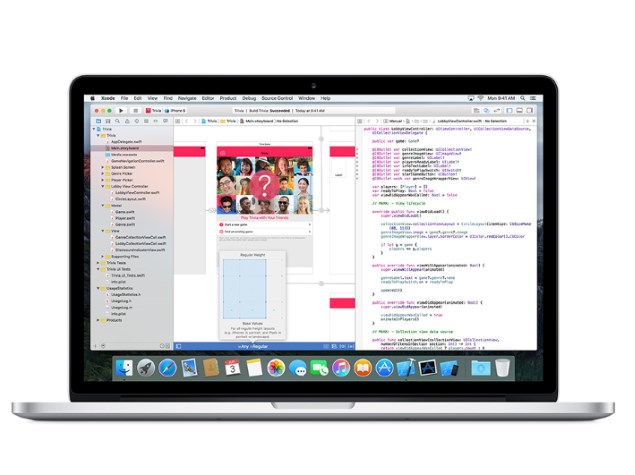Amongst
the many announcements about products and features made at the annual
WWDC opening keynote on Monday, Apple broke some news for developers.
The company has merged its formerly separate OS X and iOS developer
programs and has added a third component for Apple Watch development.
The two pre-existing programs used to cost $99 per year each, while the
new one will require only a single $99 payment per year.
Apple
provides resources and developer tools which are covered by the
membership fee. Those enrolled in either one of the pre-existing
programs have already been migrated, while those who were enrolled in
both will have their subscriptions extended by the combined number of
days remaining in each. The move will promote the development of apps and experiences that work across the desktop, mobile and wearable ecosystems.
Developer Program members can access beta
OS releases, manage devices and services, submit apps and updates,
launch TestFlight beta programs, and use the App Store payment and
distribution networks. Registered developers receive 70 percent of sales
revenue from apps and in-app purchases.
Another change is that a
paid account is now not needed at the development stage; it's only
publishing to the iOS, OS X and Watch app stores that will require paid
membership. Aspiring developers can thus develop and test apps on their
own devices without having to pay. The change will be rolled out along
with Xcode 7. A beta of Xcode 7 is already available on Apple's
developer website.
In another piece of news that will bring cheer
to the community, Apple announced that its Swift development language
will be going open source, as of the release of Swift 2. Swift was
launched at the same event last year, and is being positioned as the
"next big programming language", according to Craig Federighi, Senior
Vice President of Software Engineering at Apple. Swift promises
"baked-in security" and speed along with modern features.
Apple
has stated that it will release the Swift source code including the
compiler and standard library, and accept contributions from the
community. A concrete timeline has not been laid out but Apple says it
will do all this by the end of this year. Improvements in Swift 2
include better error handling, better support for older OS versions,
protocol extensions and updated SDKs.
 Bitcoin Reportedly Overtakes Google, Amazon, Meta to Become Fifth-Largest Asset by Market Cap23 April 2025
Bitcoin Reportedly Overtakes Google, Amazon, Meta to Become Fifth-Largest Asset by Market Cap23 April 2025 Apple’s New Siri Chief Enlists Vision Pro Talent to Start Comeback Bid23 April 2025
Apple’s New Siri Chief Enlists Vision Pro Talent to Start Comeback Bid23 April 2025 iPhone 17e to Enter Trial Production Soon, Could Debut in May 2026, Tipster Claims23 April 2025
iPhone 17e to Enter Trial Production Soon, Could Debut in May 2026, Tipster Claims23 April 2025 iPhone 17 Air Slimness Revealed in Purported iPhone 17 Series Hands-On Video With Dummy Units23 April 2025
iPhone 17 Air Slimness Revealed in Purported iPhone 17 Series Hands-On Video With Dummy Units23 April 2025 iPhone 17 Pro to Arrive in M4 MacBook Air-Inspired Sky Blue Colourway, Tipster Claims23 April 2025
iPhone 17 Pro to Arrive in M4 MacBook Air-Inspired Sky Blue Colourway, Tipster Claims23 April 2025



![Gadgets 360 With Technical Guruji: News of the Week [April 20, 2025]](https://c.ndtvimg.com/2025-04/if5c1cvo_news-of-the-week_160x120_20_April_25.jpg?downsize=180:*)
![Gadgets 360 With Technical Guruji: Ask TG [April 20, 2025]](https://c.ndtvimg.com/2025-04/561hesm_ask-tg_160x120_20_April_25.jpg?downsize=180:*)










